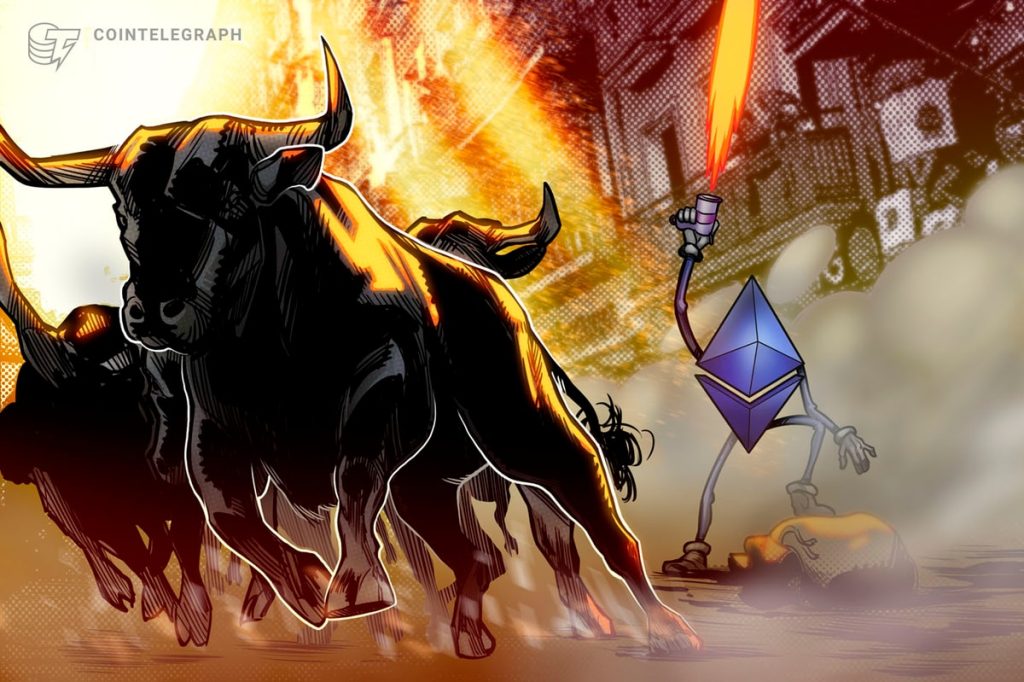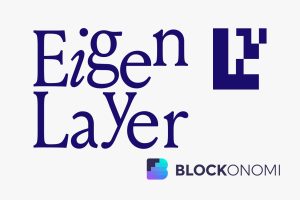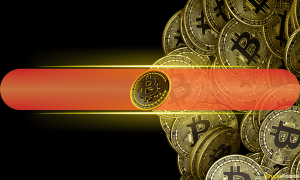Ethereum bulls ignore regulatory action against exchanges by preparing for the Shapella hard fork

[ad_1]
For the past twelve days, the price of Ether (ETH) has been trading in a narrow descending range. Surprisingly, not even the news of Binance and Changpeng “CZ” Zhao being sued by the Commodity Futures Trading Commission (CFTC) was enough to break the support level.

The lawsuit, filed on March 27, claimed that Binance provided derivatives trading services to United States-based customers without first obtaining a derivatives license. Additionally, the U.S. Securities and Exchange Commission served Coinbase with a Wells notice on March 22.
Even if traders saw no reason to reduce their Ether positions due to increased regulatory risk, Binance holds 35% of the open interest in Ether futures. Therefore, if traders are suddenly compelled to liquidate their positions or if there is a sudden reduction in liquidity after U.S. entities are effectively barred from Binance’s markets, one should anticipate a significant impact on Ether derivatives markets.
One could point to the market’s resiliency after BitMEX derivatives exchange lost its longtime market share advantage following a 30-minute outage in March 2020 during a Bitcoin crash. However, there is no way to predict the outcome of the regulators’ case against Binance, so it would be naive to assume that there is a zero percent chance of a service interruption — even if it means clients can close positions and withdraw assets.
Instead of focusing solely on the ETH price, it is essential to closely monitor Ether derivatives to understand how professional traders will react.
ETH derivatives show increased demand for longs
In healthy markets, the annualized two-month futures premium should trade between 5% and 10% to cover associated costs and risks. However, when the contract trades at a discount (backwardation) relative to traditional spot markets, it indicates traders’ lack of confidence and is regarded as a bearish indicator.

On March 29, derivatives traders using futures contracts became slightly more bullish as the indicator moved to 4%. The futures premium reached its highest level in four weeks, despite remaining below the 5% neutral threshold. Those traders became even more confident that the market structure would remain stable.
Still, the increasing demand for leverage longs (bulls) does not necessarily translate to an expectation of positive price action. Consequently, traders should analyze Ether’s options markets to understand how whales and market makers are pricing the odds of future price movements.
Related: SEC chief Gary Gensler to face Congress grilling over crypto policy
Option traders are unfazed by regulators’ actions
The 25% delta skew is a telling sign when market makers and arbitrage desks are overcharging for upside or downside protection.
In bear markets, options investors give higher odds for a price dump, causing the skew indicator to rise above 8%. On the other hand, bullish markets tend to drive the skew metric below -8%, meaning the bearish put options are in less demand.

The delta skew indicator has been neutral since March 22, indicating similar pricing for upside and downside options. However, given that Ether’s price is nearing its highest level in seven months, at $1,800, one would expect the protective put options to trade at a premium — which is not the case.
Given the increased regulatory pressure on Coinbase and Binance, it is clear that the derivatives markets are signaling confidence. The bullish momentum for Ether could also be linked to the Shapella fork being confirmed for April 12. Validators will be able to withdraw their ETH coins from the Beacon Chain once the Ethereum Improvement Proposal EIP-4895 becomes active.
Options and futures markets indicate that professional traders are unconcerned about regulators’ actions against Binance and Coinbase. Those who believe the descending channel pattern will break to the upside have a solid claim.
This article does not contain investment advice or recommendations. Every investment and trading move involves risk, and readers should conduct their own research when making a decision.
The views, thoughts and opinions expressed here are the authors’ alone and do not necessarily reflect or represent the views and opinions of Cointelegraph.
[ad_2]
Source link









